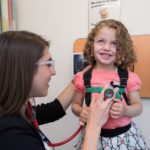Then and now: Catching up with some of our short bowel syndrome kids

Also known as “short gut,” short bowel syndrome is a life-threatening condition in which a lack of functioning intestine can make it difficult to absorb the nutrients needed to survive and thrive. Thanks to advances in medical and surgical treatments — many of which have been made by the team in Boston Children’s Center for Advanced Intestinal Rehabilitation (CAIR) — children with this condition are living longer, fuller lives. We caught up with three longtime CAIR patients to see how they’re doing now.
Ellie
Then: age 11
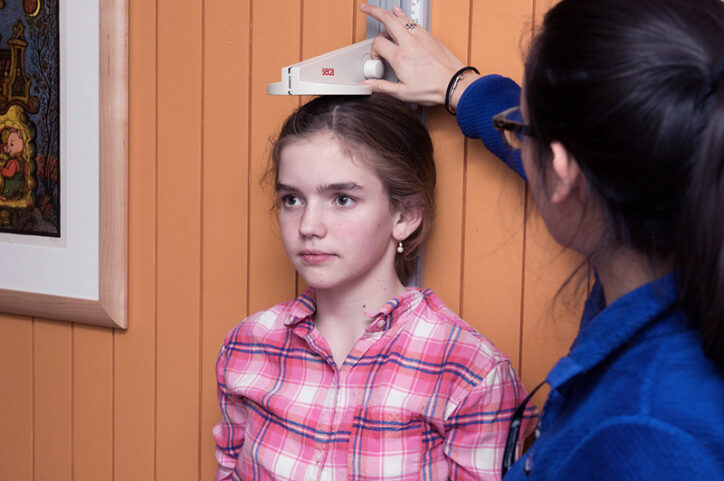
Ellie has been coming to CAIR since she was a baby — her family even relocated to be closer to her care team. Early in her treatment, she started taking Omegaven, a fish-oil based product developed by Dr. Mark Puder and others that’s been shown to prevent liver damage in kids on total parenteral nutrition. When we last spoke with her parents nearly seven years ago, her greatest wish was to be able to adjust her nightly central line infusions so she could attend sleepovers.
Now: age 18
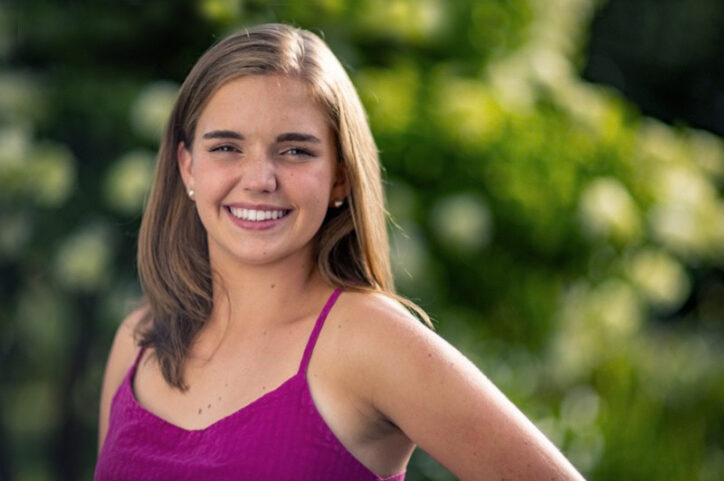
Ellie’s medical independence has increased drastically: She had her G-tube removed in 2019 and — thanks to the medication teduglutide (Gattex) — she had her central line removed in 2021. She’s now managing her medication and nutrition independently and just started attending Skidmore College, returning to the CAIR clinic about every six months for check-ins.
How has CAIR clinic supported you over the years?
Clinic has made it possible for me to live as normal of a life as possible, from making it so that I can swim safely to listening to me when I advocate for myself. They want what’s best for me, and I feel like we can work together to find new ways to improve my quality of life as I grow.
Any big milestones or achievements to share?
Speaking about my experience to Dr. Puder’s classes at Harvard Medical School is the highlight of my January — I look forward to it every year. I’ve been attending these talks since I was 5 and leading them since I was 8. It’s always interesting to think that there are doctors and residents out there now that I spoke to when they were med students. I want to keep being a guest speaker throughout college, even if it’s over Zoom.
One other major milestone for me is that I went abroad for a cultural immersion program in Spain for 10 days, reaching a medical independence goal I’d set for myself since I was 10 and starting to learn Spanish. It was the farthest I’ve ever been away from home and the most medically independent that I’ve had to be before starting college. I had an absolute blast there!
What do you do for fun?
I like to write, watch TV and movies, and talk with my friends in my free time. I also love theater. Without my central line, I’ve also been able to swim in the local lake near my house.
What do you want other kids and families to know?
I’d like them to know that they aren’t alone and to reach out to others, because in my experience, people want to connect. There aren’t a lot of us, but we’re out there. I grew up before treatments like Omegaven were fully available or approved by the FDA, so I don’t know many people who are older than me with short bowel syndrome. Reaching out through organizations like The Oley Foundation helped me connect with people who understood what it was like to have this condition. Reaching out can be hard, but it can mean a world of difference.
Christian
Then: age 2
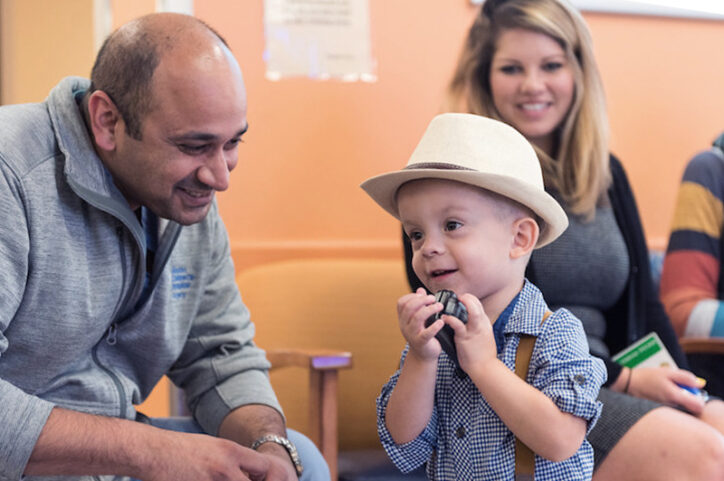
After surgery to treat a condition called gastroschisis left Christian with short bowel syndrome, he had to rely on intravenous parenteral nutrition, which led to liver disease — a risk associated with long-term PN. In March 2018, his parents sought a second opinion from Dr. Biren Modi and the rest of the CAIR team. Ultimately, Christian underwent successful intestinal reconnection surgery and transitioned to a G-tube.
Now: age 8
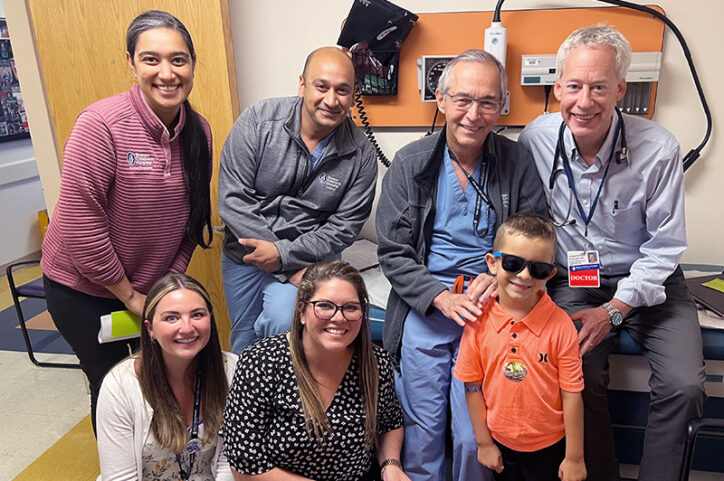
As Christian gets older, he’s learning how to help his parents manage his health by verbalizing what he’s feeling. He is only connected to his feeding pump in the evening and overnight and takes his medications at morning and night, which has helped him feel more like a typical kid at school. He travels to the CAIR clinic from his home in Oklahoma about every two to four months, says his mom, Rachel.
How has CAIR clinic supported Christian over the years?
The CAIR team has helped our family in countless ways. First and foremost, they connected our family with resources just to get Christian to Boston Children’s. They helped petition our insurance for nearly three years to get his tube-feeding formula covered, which saves our family around $2,000 a month. They work within and around the tight constraints of our private insurance plan. They set up plans so Christian can safely attend public school. And they encourage and support us emotionally.
Any big milestones or achievements to share?
Christian considers it his greatest honor to do fundraising and advertisements for Hospitality Homes and Children Flights of Hope, “because they worked with Boston Children’s Hospital to save my life and help me have a good life now!” Although he struggles physically, he’s been blessed with a wonderful mind and heart. He is in the gifted and talented group at school and currently reads at a seventh-grade level. Christian says, “I plan to be a lawyer so I can be a judge! I want it to be a law that all kids get to see the doctors they need.”
What is your hope for Christian?
Christian’s birth and diagnoses reshaped our family’s outlook on life. We focus much more on quality of life and less on quantity of life. The truth is, none of us knows how many days we have on this earth. Christian embraces daily joy despite the challenges he faces. It’s our hope that he never loses his optimistic, goal-driven personality.
What do you want other families to know?
There is help available. We all get tired of battling sometimes. Health insurances, schools, pharmacies, work, health, family, etc. — it all gets overwhelming sometimes. It’s okay to ask for help. It’s okay to take a break. Just don’t give up!
Makai
Then: 10 months
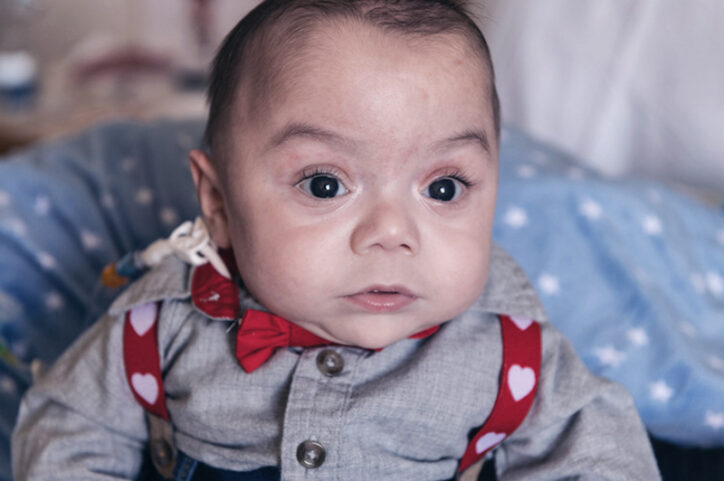
Makai, a triplet, developed necrotizing enterocolitis soon after he was born, which led to short bowel syndrome. Although his initial treatment had taken place at the family’s home hospital in Connecticut, they felt he would receive more specialized care at CAIR. In 2022, Makai received nutrition through his central line.
Now: age 3
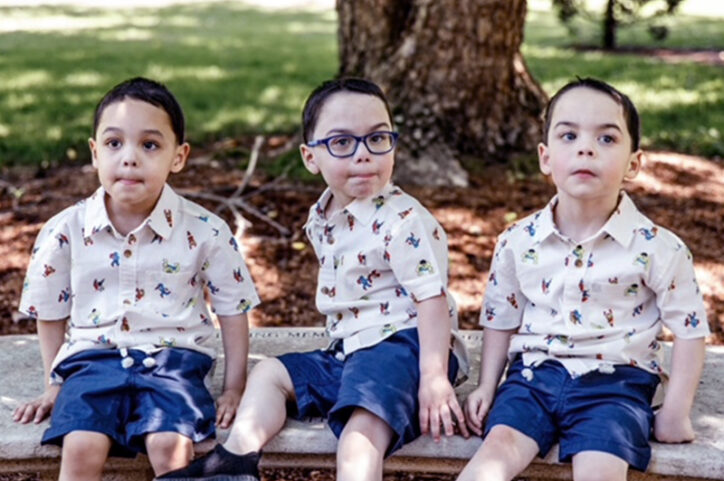
Today, Makai has made remarkable progress and has surpassed expectations, say his parents, Liz and Eric. He enjoys learning about the world around him, playing with small figurines and LEGOs, and doing arts and crafts. He also loves climbing, running, and spending time with his brothers Gabriel and Eric, Jr., on the playground. He returns to CAIR clinic every eight to 10 weeks.
How has CAIR clinic supported Makai over the years?
The CAIR team continues to support us in any way possible. [Social workers] Jessica McCaig and Ashley Roberge-Boire are amazing, but the entire team is phenomenal. Anytime we reach out for questions or need assistance with paperwork, it gets completed quickly. Everyone listens and allows us to make informed decisions in Makai’s care. We’re included in every decision or change.
Any big milestones or achievements to share?
One of Makai’s biggest milestones is having his central line removed. He no longer needs overnight feeds via his G-tube either; he’s managed to increase his intake during the day. He also eats by mouth — and recently tried cake and Oreos.
What is your hope for Makai?
Despite the challenges Makai was presented, he’s been able to develop resilience and adaptability. Our hope is that he lives a life filled with love, joy, and fulfillment regardless of those challenges. We also hope that advancements in medicine and supportive care continue to improve, innovate, and push boundaries. This will create a world where Makai and others like him can thrive with fewer limitations and endless possibilities.
What do you want other families to know?
Even though this journey is hard and incredibly challenging, it’s crucial to hold on to the glimmers of hope and light. Focus on creating joyful and strong memories with your child and family.
And remember, advocating for your children is essential. Always ask questions and make informed decisions. If you’re still unsure, never be afraid to ask for additional details or speak up. The more you know, the more confident you will be in making decisions.
Learn more about the Center for Advanced Intestinal Rehabilitation.
Related Posts :
-

Finding specialized care for short bowel syndrome: Meet Makai
Eric Maldonado was picking up some groceries one day last fall when he saw a familiar face: The woman, a ...
-

Living his best life: Caring for Christian
Christian Jaspersen was wet, muddy — and having the time of his life. After an ATV ride around his family’s ...
-

Growing up with short bowel syndrome: Follow-up care matters
Short bowel syndrome, a serious condition in which a child lacks sufficient small intestine to absorb the nutrients the body ...
-

‘An easy decision’: Finding care for short bowel syndrome
Allie DeRienzo loves to dance, sing and play with her big brother, switching from the pink-and-purple cartoon world of ...





